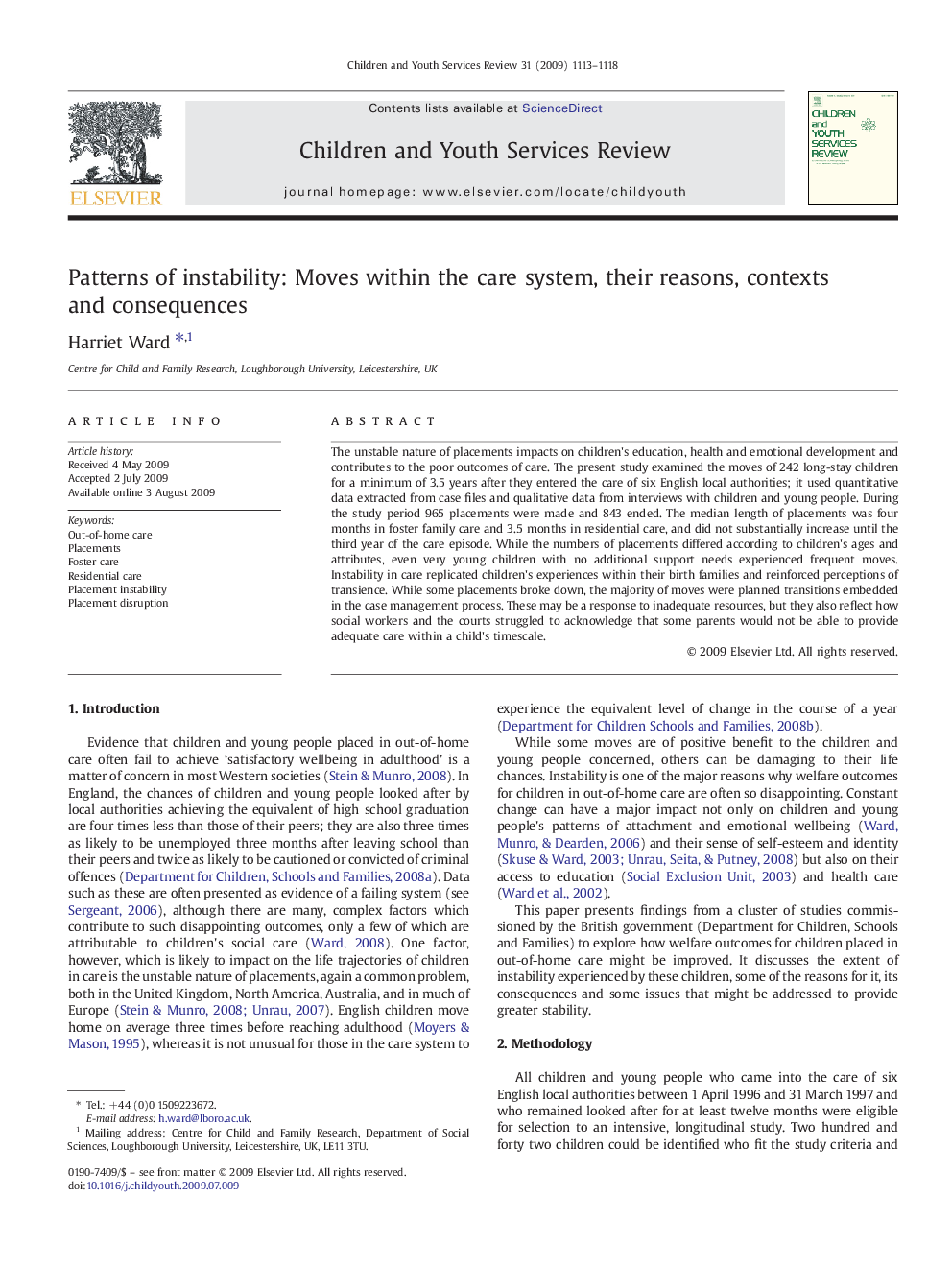| Article ID | Journal | Published Year | Pages | File Type |
|---|---|---|---|---|
| 346811 | Children and Youth Services Review | 2009 | 6 Pages |
The unstable nature of placements impacts on children's education, health and emotional development and contributes to the poor outcomes of care. The present study examined the moves of 242 long-stay children for a minimum of 3.5 years after they entered the care of six English local authorities; it used quantitative data extracted from case files and qualitative data from interviews with children and young people. During the study period 965 placements were made and 843 ended. The median length of placements was four months in foster family care and 3.5 months in residential care, and did not substantially increase until the third year of the care episode. While the numbers of placements differed according to children's ages and attributes, even very young children with no additional support needs experienced frequent moves. Instability in care replicated children's experiences within their birth families and reinforced perceptions of transience. While some placements broke down, the majority of moves were planned transitions embedded in the case management process. These may be a response to inadequate resources, but they also reflect how social workers and the courts struggled to acknowledge that some parents would not be able to provide adequate care within a child's timescale.
